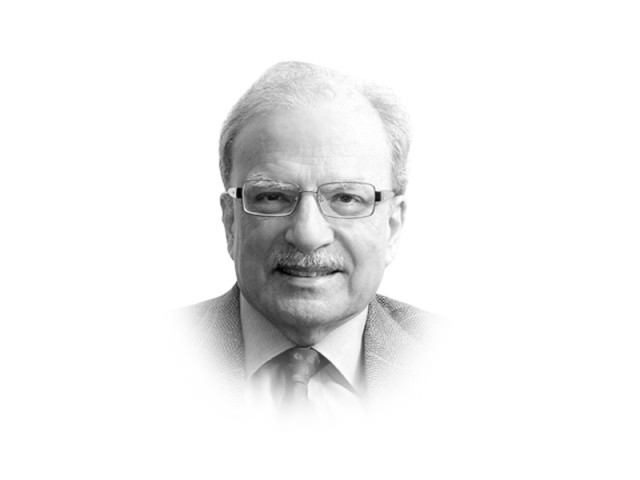Pakistan’s 2014 Crisis: Consequences for evolution
How should one view the Imran Khan and Tahirul Qadri campaigns?

Political scientists have begun to call a structure that achieves these objectives, an inclusive political system. It is the development of this system that the United States’ President, Barack Obama, has indicated as a precondition for helping Iraq deal with the menace presented by the rise of a phenomenon that is called the Islamic State of Iraq and Syria, or ISIS. In his September 10 speech launching what should be called the “Obama’s war”, the President said that it was only when such an order is in place that a society can expect to achieve modernity.
Or does the causality run in the opposite direction? As has been suggested by some scholars — it is only when societies have reached a reasonable level of per capita income that the liberal democracy can get established. The direction of causality is perhaps what economists call “path dependence.” It depends on the history of the society undergoing change; the path it has followed. My own research on Pakistan suggests that political development must precede economic advance. It is this belief that causes me to worry a great deal about the long-term impact of the two political movements launched in August.
But why should the development of liberal democracy be equated to political development? As some Islamists would argue and as the extremist movement Tehreek-e-Taliban Pakistan hopes to achieve, a political system that duplicates the one that was established in the early days of Islam, is the one most suitable for Muslim societies. One answer why the establishment of liberal democracy as the ultimate goal came from Francis Fukuyama. In it he argued that liberal democracy stood alone as the only form of government which could meet the aspirations of all people. It was the only one that was compatible with social and economic modernity.
Francis Fukuyama, by drawing on the insights of Samuel Huntington, has provided an answer in the second volume of his magnum opus issued in September. The volumes deal with the issues of political and economic modernity over the entire span of recorded human history. His subject is both political development and political decay. Societies don’t move forward in a linear way. Not only will there be political progress but the process could be reversed and political decay may set in if the conditions that support the continuation of liberal democracy begin to weaken. He identifies three conditions that must be present all the time for societies to keep on moving forward — political accountability; a strong, effective state; and the rule of law. Accountability requires mechanisms for keeping leaders responsive to the entire citizenry, not just those who support them. Periodic elections are the most important institutional mechanism for ensuring leadership accountability.
This was something that was not recognised by the dictators in Pakistan’s history. If we trust his autobiography, General Pervez Musharraf was deeply concerned with economic and political corruption. He put greater emphasis on such institutional devices as the National Accountability Bureau than in getting the citizens to express their views about him and his policymaking partners. Elections were held in 2002 but as Fukuyama correctly emphasises, these had to be supplemented by a state that can get things done. People must be delivered their basic needs by the use of rules and regulations that apply equally to all of them. With this as the theoretical background, how should one view the Imran Khan and Tahirul Qadri campaigns? This is a question for next week.
Published in The Express Tribune, September 22nd, 2014.
Like Opinion & Editorial on Facebook, follow @ETOpEd on Twitter to receive all updates on all our daily pieces.















COMMENTS
Comments are moderated and generally will be posted if they are on-topic and not abusive.
For more information, please see our Comments FAQ